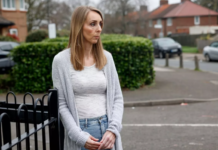In a new article, psychiatrist Rupinder K. Legha suggests that the standard recommendation to call 911 for a person in a mental health crisis is a dangerous response that may lead to police violence and death, particularly for people of color.
The seemingly more humane recommendation to send the person to the emergency room, she adds, also leads to dehumanizing treatment, including restraints and forced medication, which leave the distressed person feeling stigma and shame and unlikely to seek treatment for their next crisis.
“This standard does not weigh the risks of police involvement, the carceral nature of mental health crisis response, and how these experiences breed stigma and shame, leaving lasting wounds, which keep people from seeking mental healthcare in the future,” Legha writes.
A new paradigm for dealing with mental health crises is needed, she adds.
Legha is a psychiatrist with lived experience of mental health crisis and psychiatric hospitalization, and founded the Antiracism in Mental Health Fellowship. Her opinion piece was published in PLOS Mental Health.
“The police have become the default responders for mental health emergencies in the U.S.,” Legha writes, “and when they do come, the risk of fatality is especially high for racially minoritized people. Specifically, almost half of the people who die at the hands of police have some kind of disability, and more than half of disabled African-Americans have been arrested by the time they turn 28—double the risk in comparison to their white disabled counterparts.”















